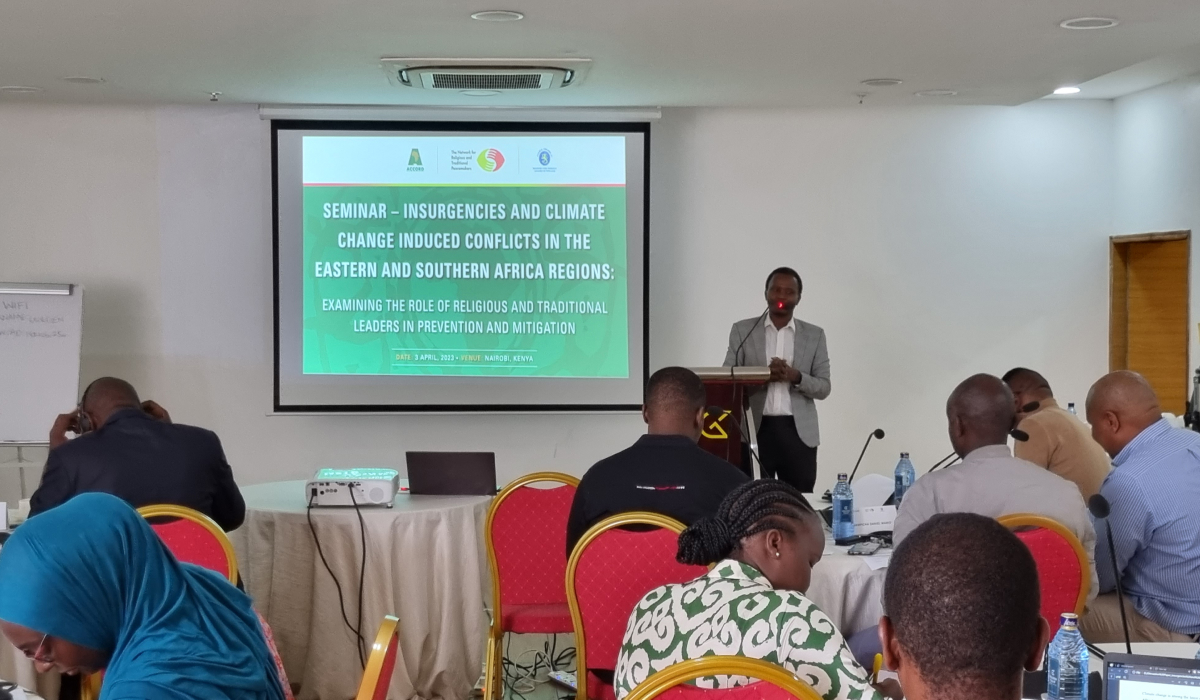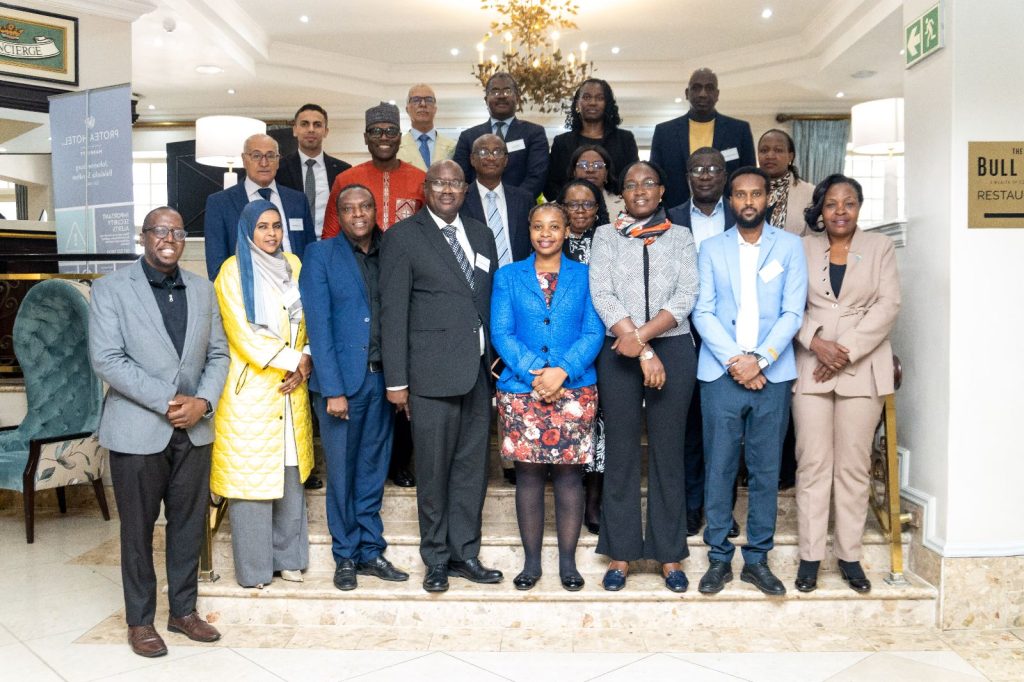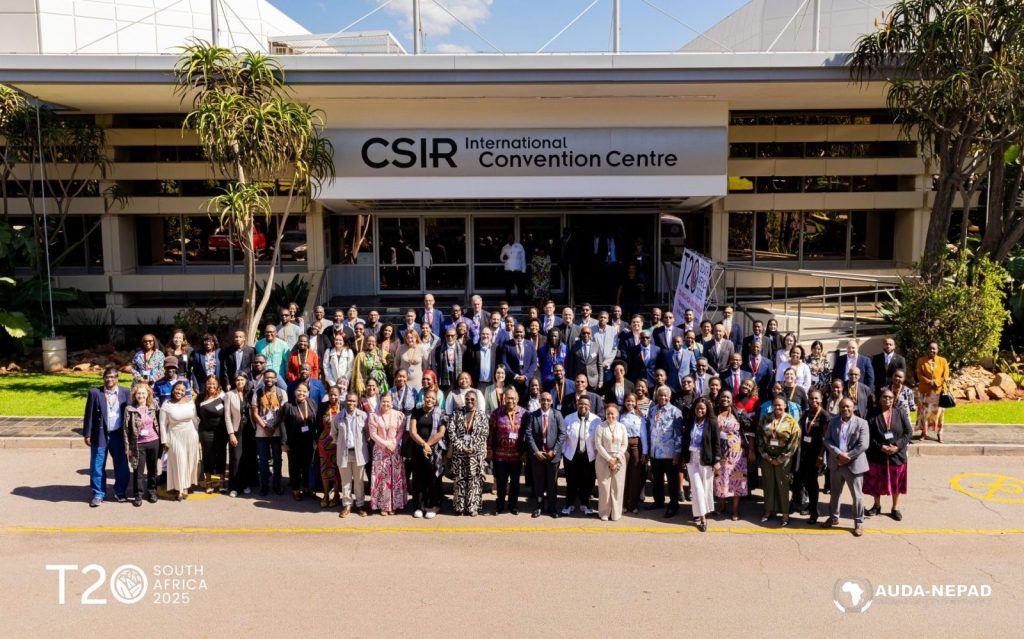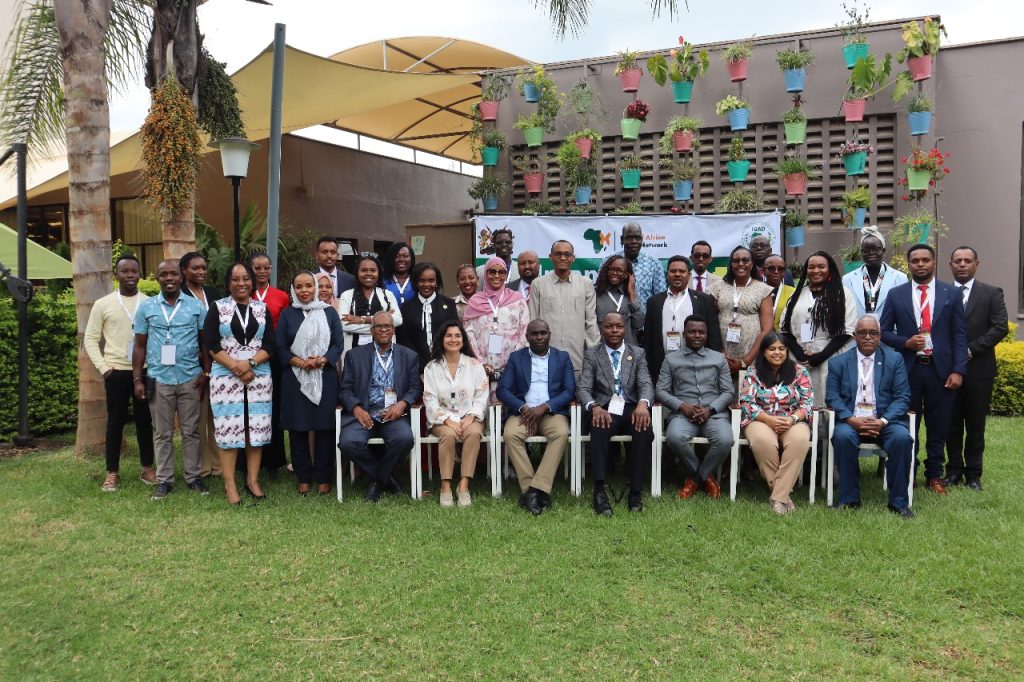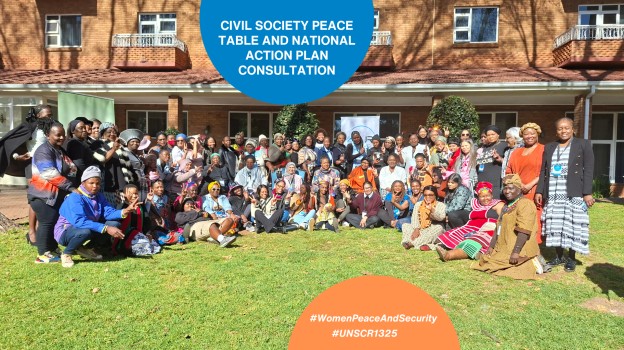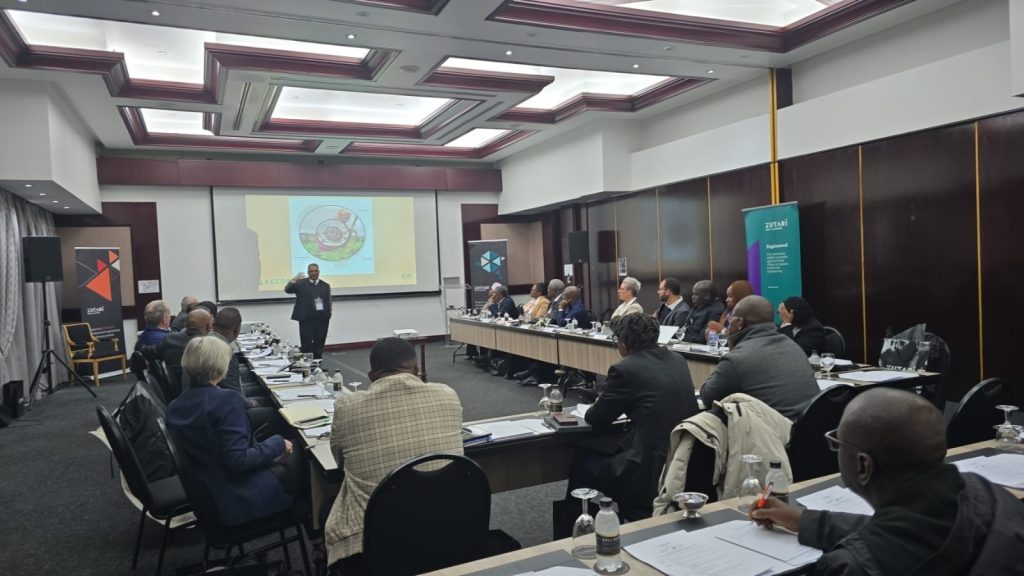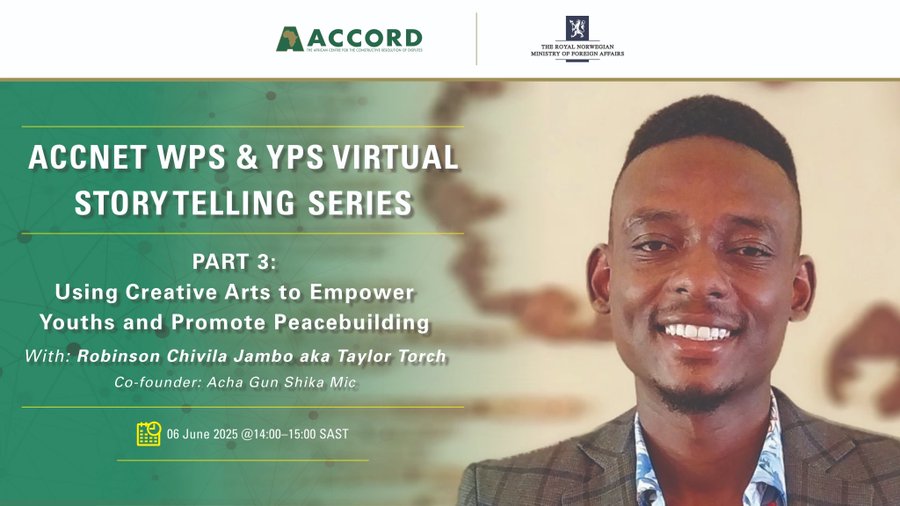On 3 April 2023, ACCORD, in partnership with the Network for Religious and Traditional Peacemakers hosted a seminar in Nairobi, Kenya on the topic, Insurgencies and Climate Induced Conflict in the Eastern and Southern Africa Regions: Examining the Role of Religious and Traditional Leaders in Prevention and Mitigation.
The seminar brought together religious and traditional leaders from across the two regions, with representation from Burundi, the Democratic Republic of Congo, Eswatini, Kenya, Mozambique, South Africa, South Sudan and Uganda. The first part of the seminar allowed for the presentation of a discussion paper, prepared by an independent expert on the topic of insurgencies and climate induced conflict and the role of traditional and religious leaders in preventing and mitigating the conflict in East and Southern Africa; and the second part provided participants with an opportunity to engage with each other and discuss their roles as traditional and religious leaders and the opportunities that exist for their greater participation in conflict prevention and mitigation. The participants also discussed climate change and the differing impacts on the East and Southern regions. In East Africa, climate change has caused prolonged droughts, while Southern Africa has been plagued by more severe cyclones and flooding. While reflecting on climate change, which does not directly cause conflicts, more intense weather phenomena does expose fault lines in societies and places further strain on access to services and resources, thereby heightening the possibility of conflicts.
This seminar and discussion paper helps ACCORD to achieve its strategic objective of strengthening the role of multi-dimensional stakeholders to deal with complex conflicts while also contributing to the enhancement of the role that traditional and religious leaders carry in preventing and mitigating conflicts in the East and Southern African regions.

